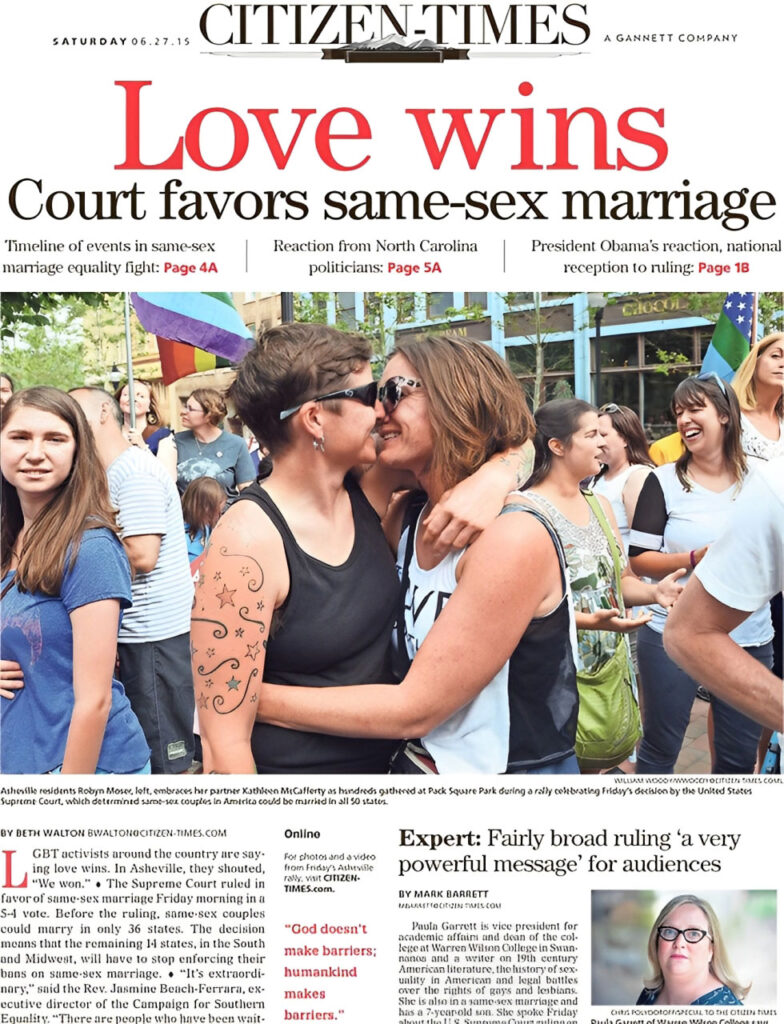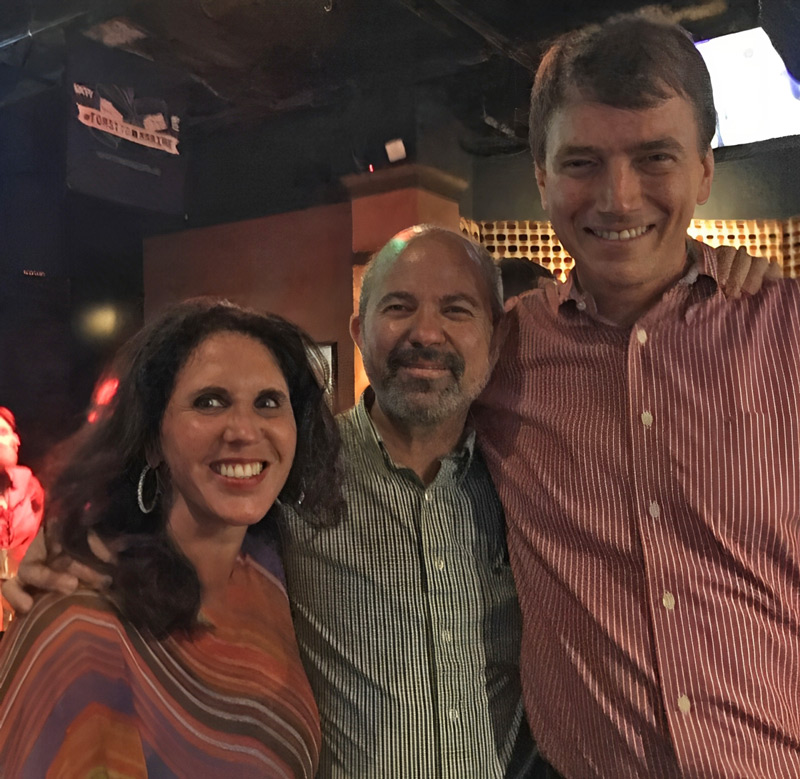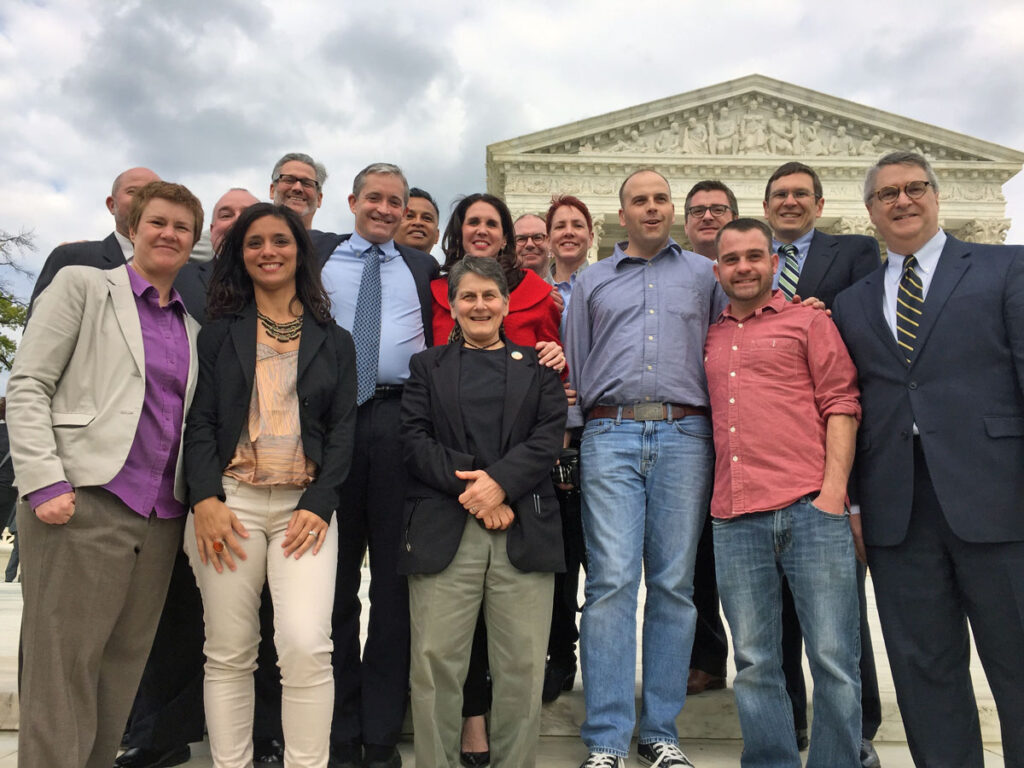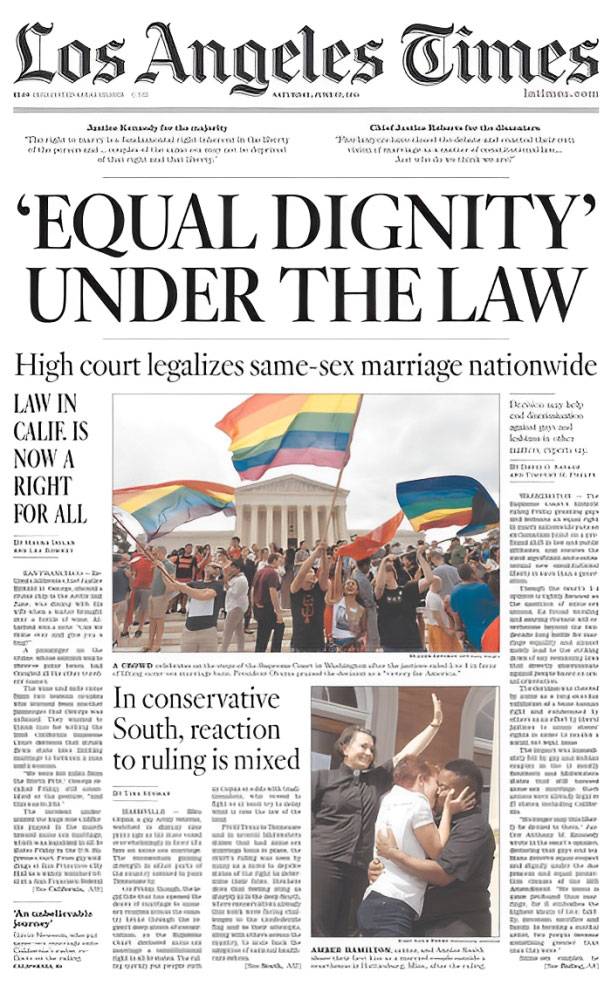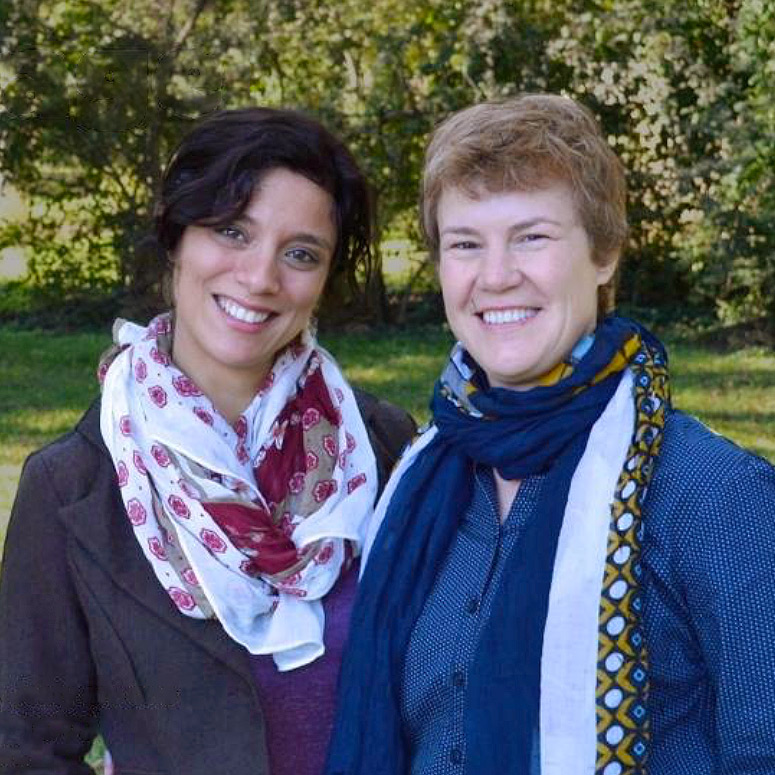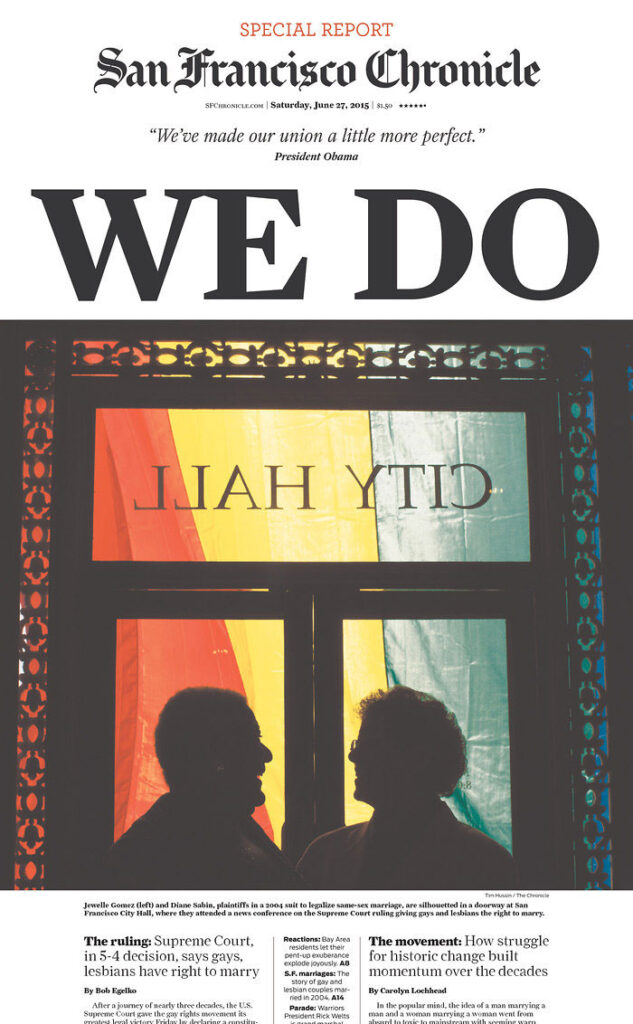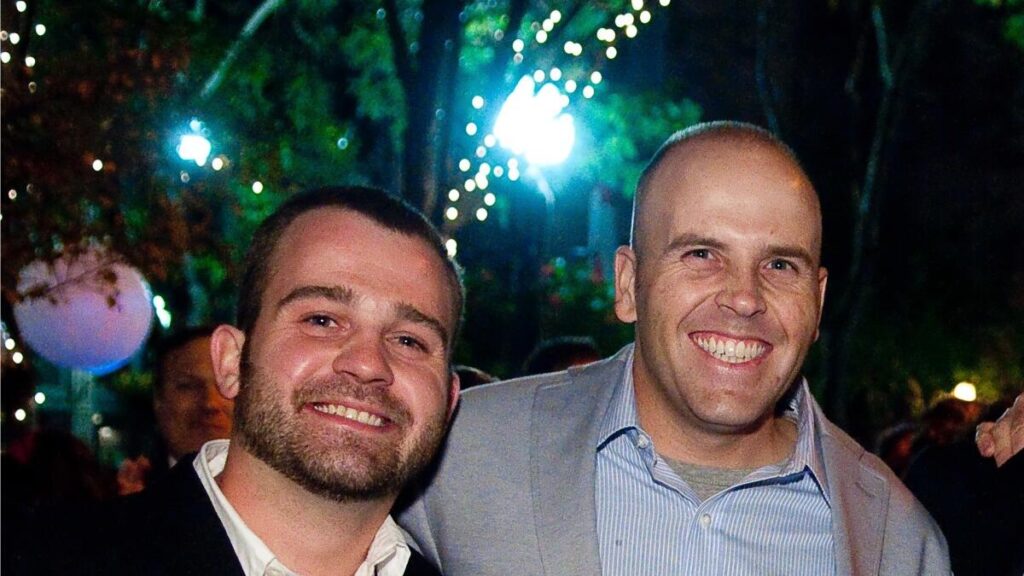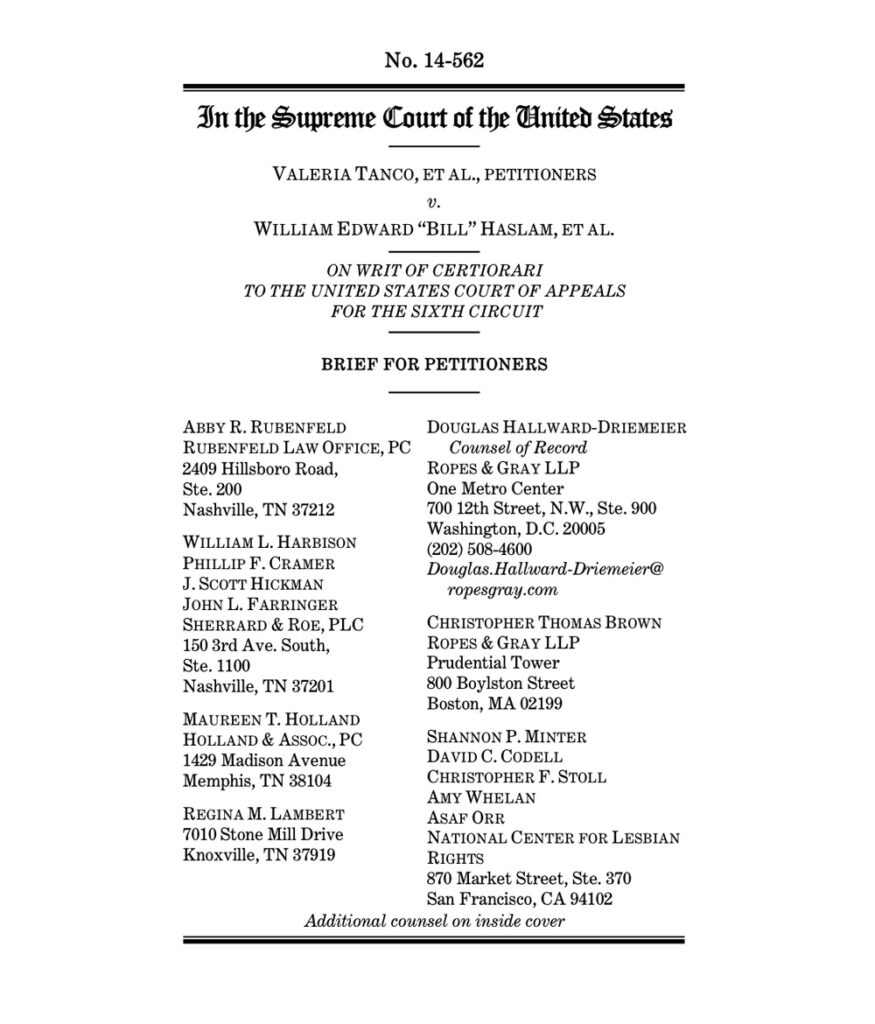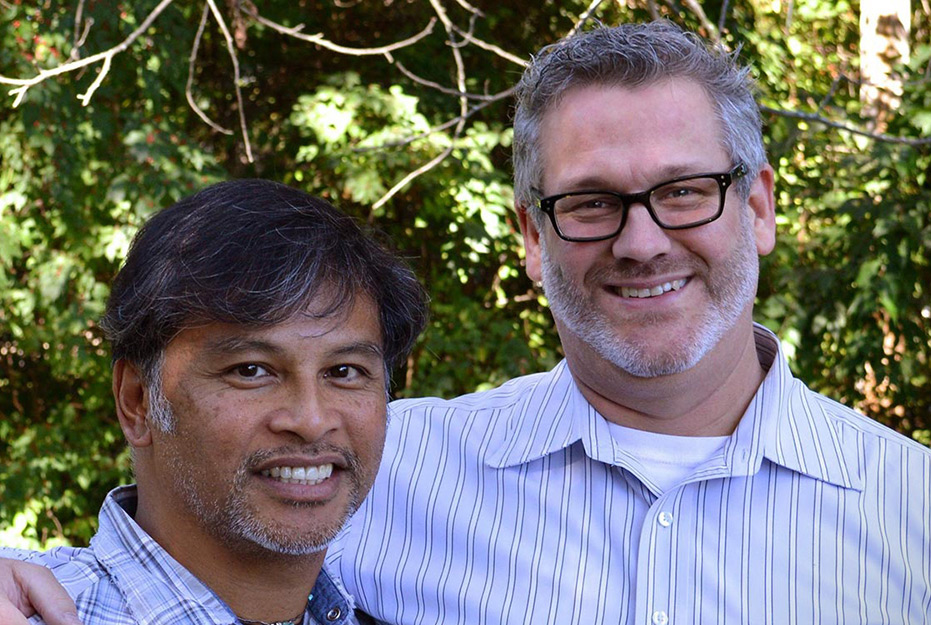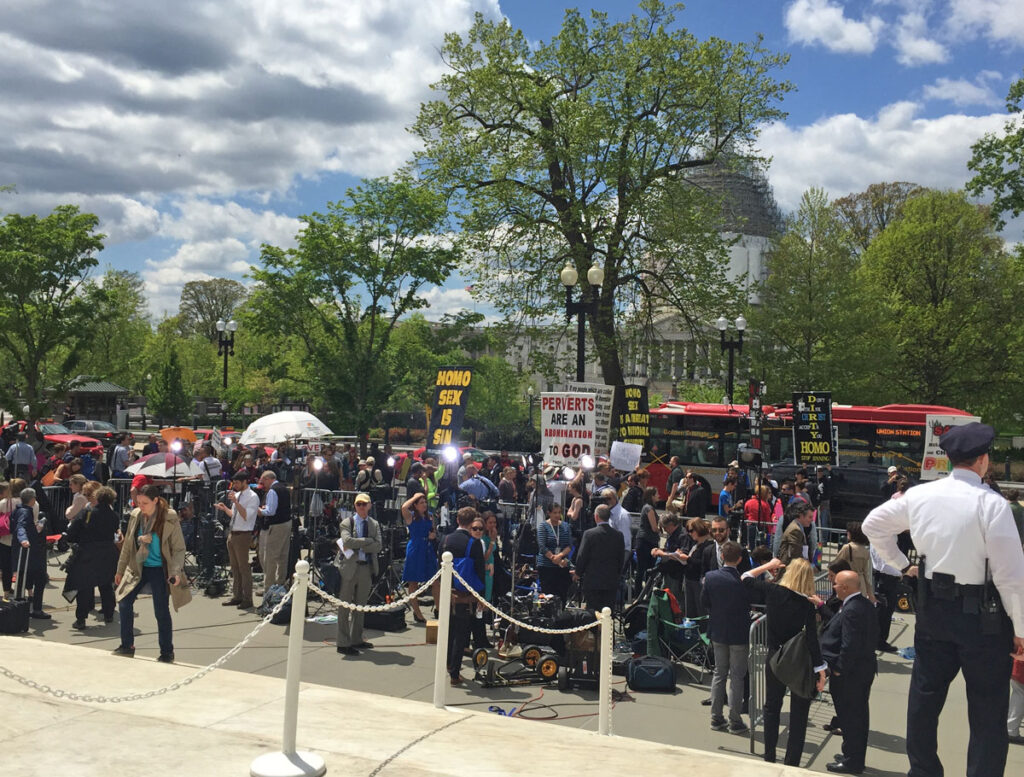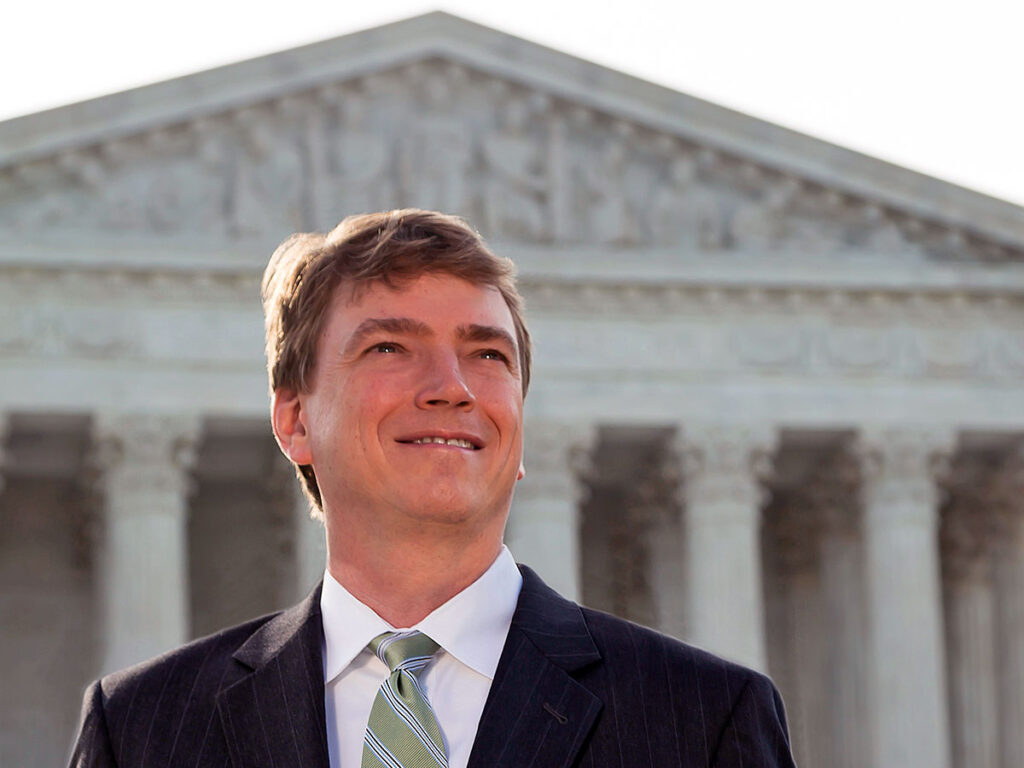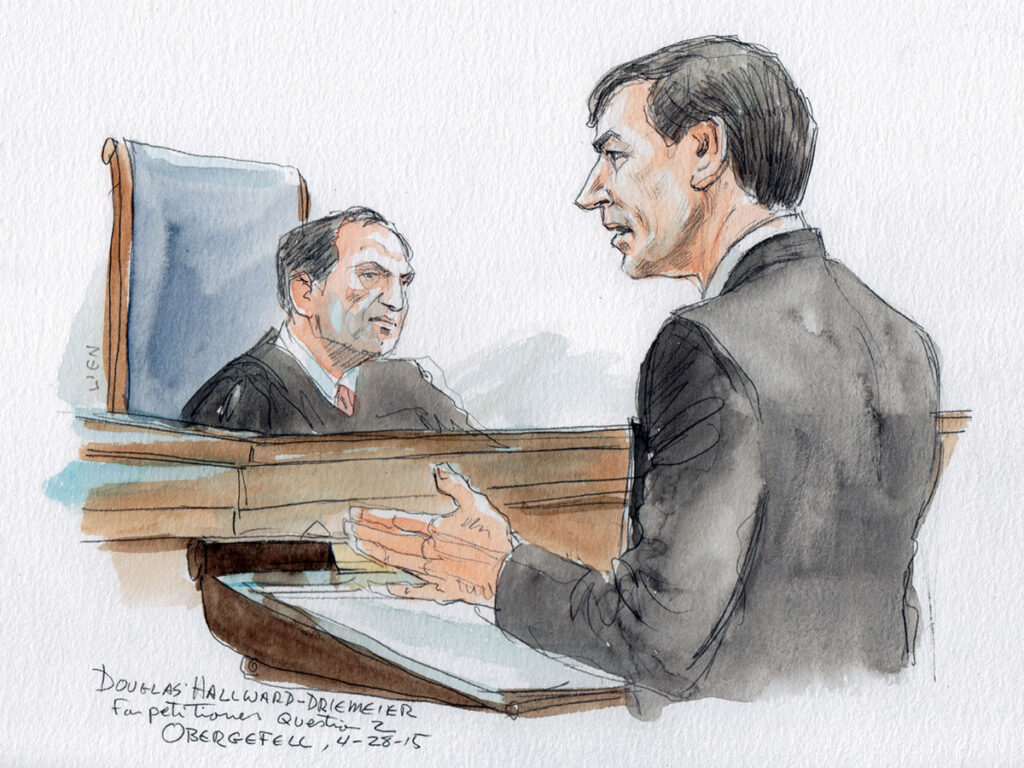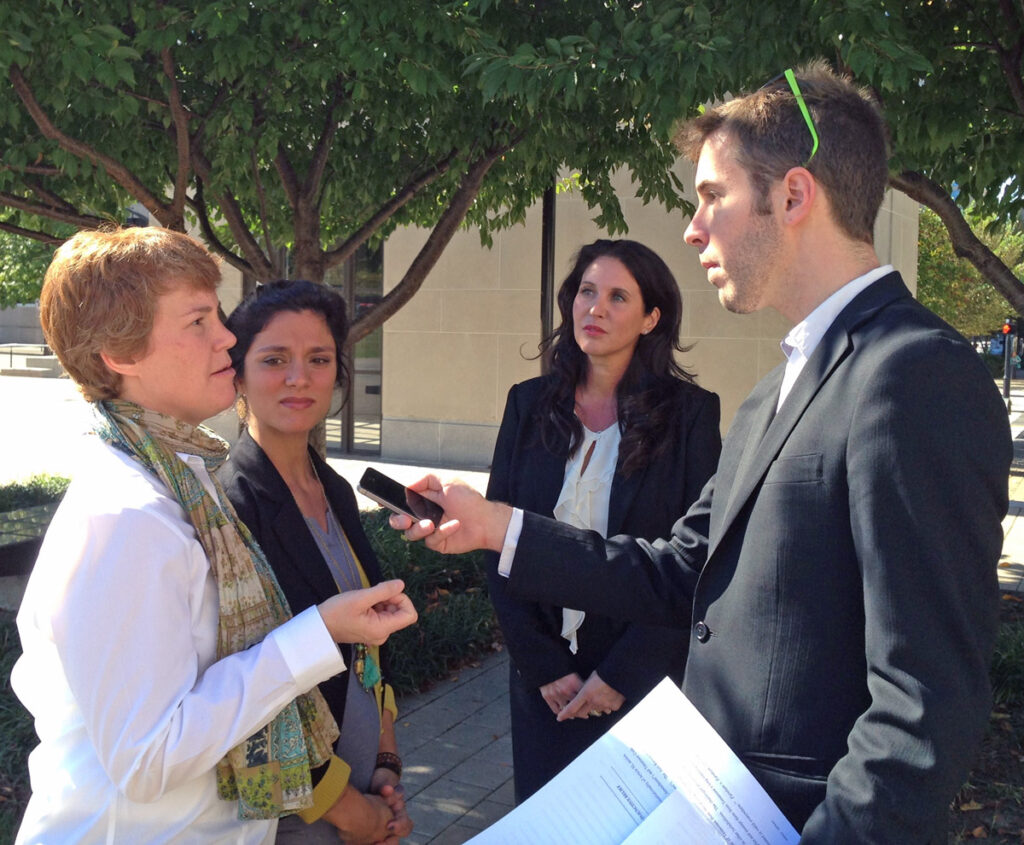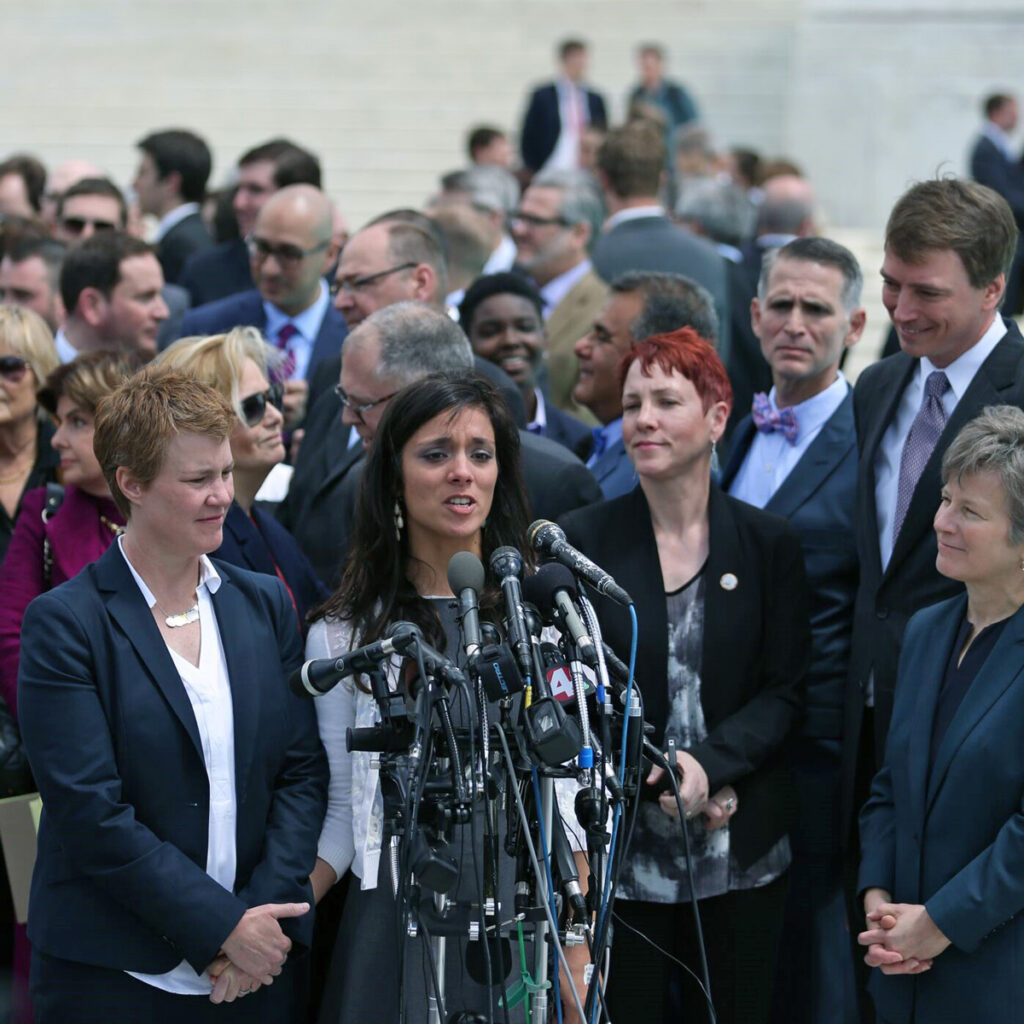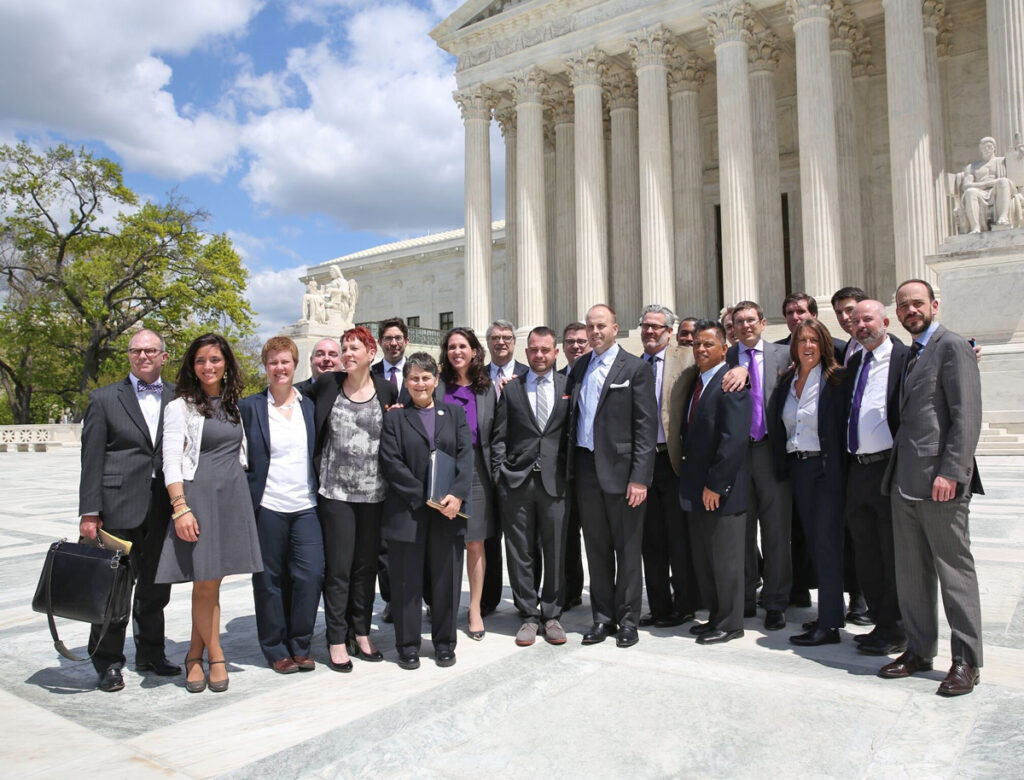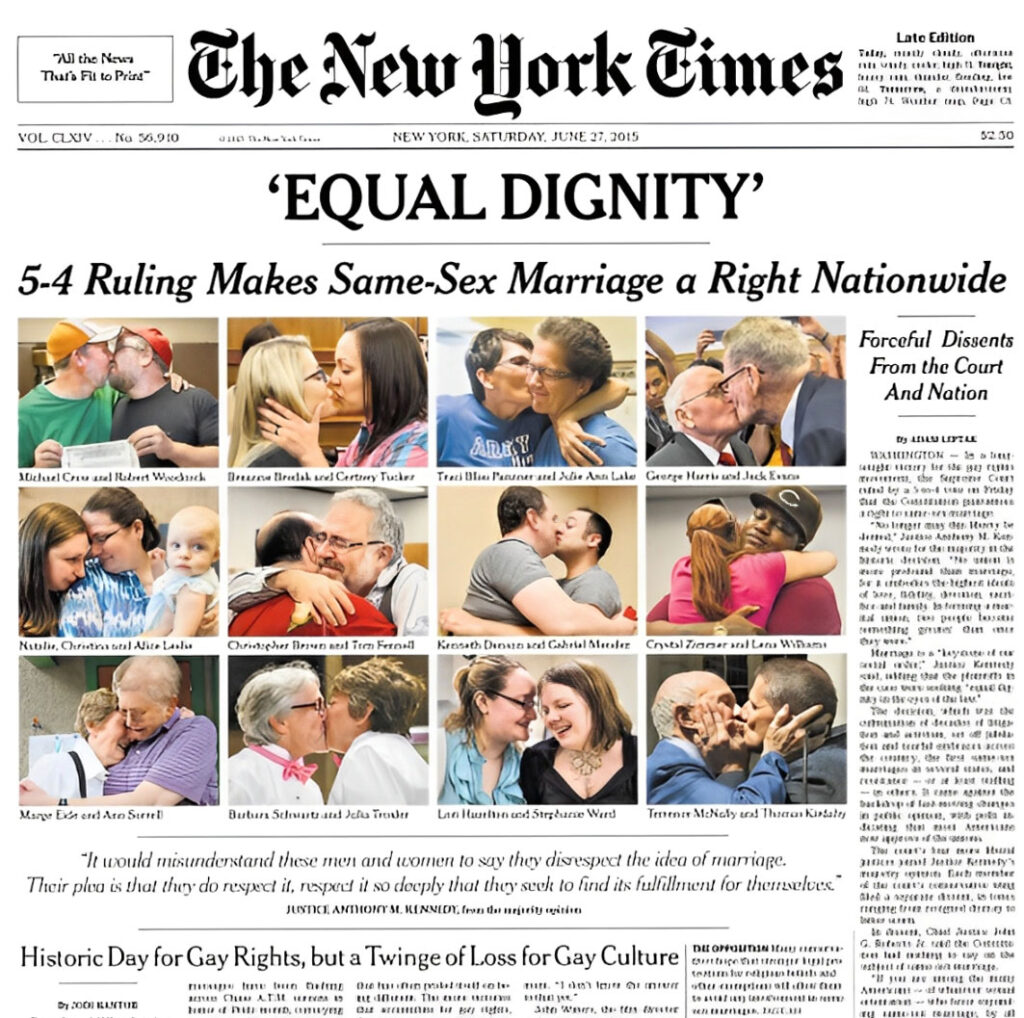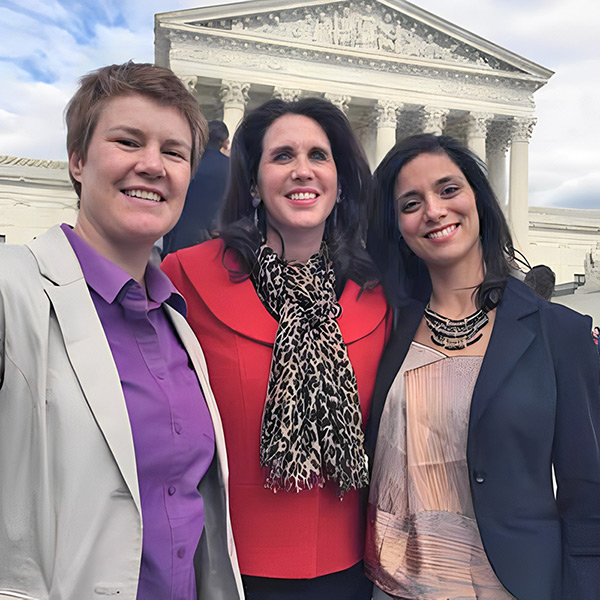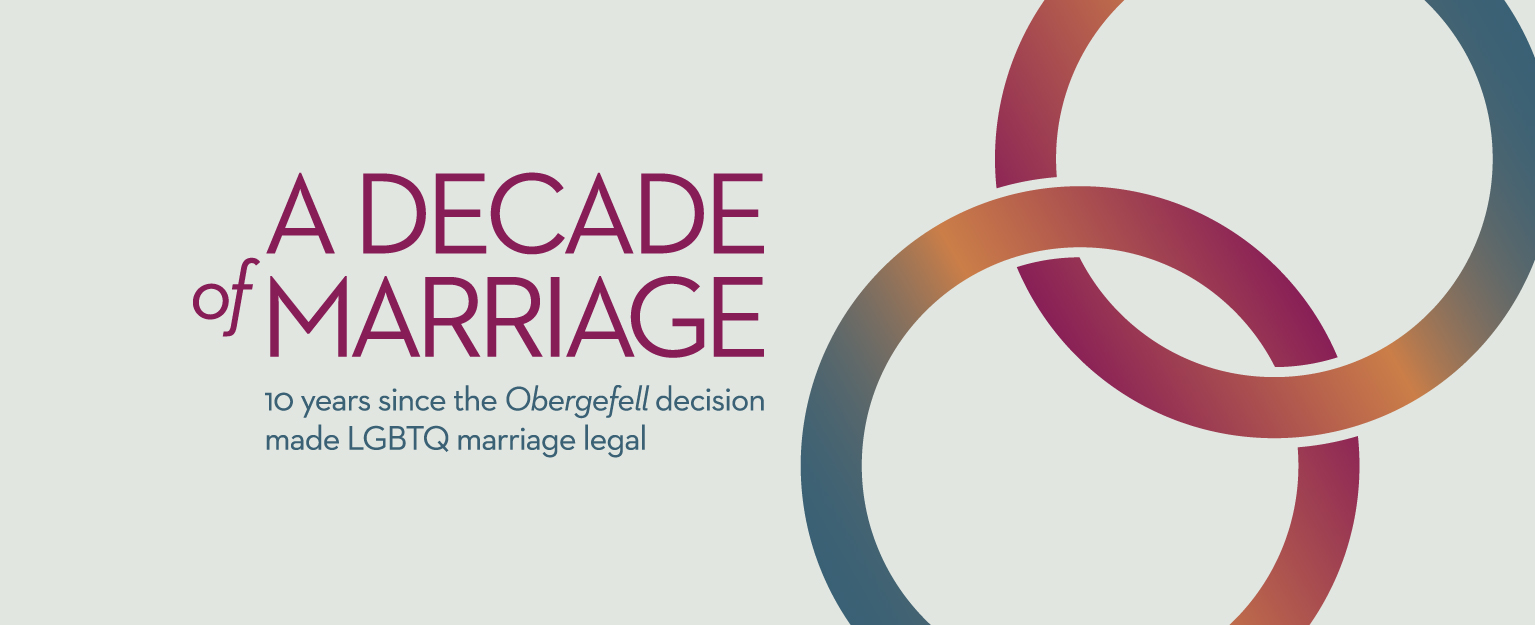
The Freedom to Marry at 10: How Lessons We Learned Then Can Help Us Now
CHRIS STOLL
This Pride Month marks ten years since the U.S. Supreme Court’s landmark ruling in Obergefell v. Hodges brought the freedom to marry to same-sex couples nationwide. The front pages that summer were filled with jubilant scenes of couples taking their vows and banners waving in celebration on courthouse steps.
Today, with a new administration in Washington launching hostile attacks on the LGBTQ community at an unprecedented pace, everyone deserves to take a breath, look back, and celebrate what we’ve accomplished. More
In This Together: Ten Years of Marriage Equality
SHANNON MINTER, ESQ.
It is hard to believe that ten years have gone by since the Supreme Court decided Obergefell v. Hodges, securing nationwide marriage equality for our community.
NCLR represented same-sex couples from Tennessee in that case, along with a stellar legal team. Tennessee was just the final chapter in the fight for marriage. Believe it or not, Tennessee was one of TEN NCLR marriage cases, including cases in California, New Mexico, Alabama, Florida, Utah, Idaho, Wyoming, North Dakota, and South Dakota. . More
Experiencing Obergefell: Memories of a Lawyer on the Team
REGINA LAMBERT HILLMAN
On June 26, 2013, when the United States Supreme Court released its opinion in United States v. Windsor, I was out of the country celebrating my half-century birthday. As an attorney I was aware of Ms. Windsor’s DOMA challenge, but I had no idea of the effect it would have on my life. While I knew that the Court’s decision was important and that it struck down Section 3 of the federal Defense of Marriage Act (DOMA), which effectively required the federal government to recognize valid same-sex state marriages, I didn’t have the opportunity to read the case and understand its impact until I returned to the states in early July. More
NCLR Marriage Cases
2008
In re Marriage Cases
Filed in 2004; Supreme Court of CA Decision 5/15/2008
In 2004 the CA Supreme Court ordered SF Mayor Gavin Newsom to stop issuing marriage licenses to same-sex couples, and NCLR along with the ACLU of Northern CA, Lambda Legal, Heller Ehrman LLP, and the Law Office of David C. Codell filed a case alleging that this ruling violated the state constitution’s equal protection guarantees and the fundamental right to marry. On May 15th, 2008, the California Supreme Court ruled that the state could no longer exclude same-sex couples from marriage, and held that LGBT people are entitled to the highest level of constitutional protection, which was the first time any high court had ever done so.
2013
Griego v. Oliver (NM)
Complaint filed 3/21/2013; NM Supreme Court ruling issued 12/19/2013
In August of 2013 NCLR along with the ACLU of NM, Albuquerque law firm Sutin, Thayer & Brown, APC filed a lawsuit on behalf of a New Mexico couple seeking the right to same-sex marriage. The couple, who had been together for 21 years, was unable to travel to another state to marry as one of them was sick with cancer, and they were not sure if they could wait the normal course of a lawsuit, so NCLR and co-counsel asked the court for an emergency order, which the court granted. Jen and Angelique were married in a ceremony performed at a cancer care clinic, and in addition to allowing them to marry, the court entered a final Judgment concluding that denying same-sex couples the right to marry violates the New Mexico Constitution.
2014
Pareto v. Ruvin and Dousset v. FAU (FL)
Complaint filed 1/21/14
On January 21, 2014, six same-sex couples and Equality Florida Institute filed a lawsuit in Florida state court in Miami seeking the freedom to marry. On July 25, 2014, the court issued a decision striking down Florida’s ban on marriage for same-sex couples and ordering Miami-Dade County to allow same-sex couples to marry. The court stayed the order pending appeal. On January 5, 2015, the court lifted its stay and ordered the Clerk of the Courts in Miami-Dade County to immediately begin issuing marriage licenses to same-sex couples. Same-sex couples began marrying in all Florida counties on January 6, 2015 as a result of orders issued in a separate federal case challenging Florida’s marriage ban.
2014
Taylor v. Brasuell (ID)
Complaint filed 7/7/14
On July 7, 2014, NCLR and Boise attorneys Deborah A. Ferguson and Craig Durham filed a lawsuit on behalf of Madelynn Lee Taylor, a 74-year-old military veteran who challenged Idaho state laws prohibiting her from being buried in the Idaho State Veterans Cemetery with her late wife, Jean Mixner. The lawsuit followed NCLR’s landmark marriage equality victory in Idaho. Idaho Governor Butch Otter and Attorney General Lawrence Wasden appealed Judge Dale’s decision to the Ninth Circuit. On October 7, 2014, the Ninth Circuit ruled 3-0 that Idaho’s ban on the freedom to marry for same-sex couples violates the U.S. Constitution’s guarantee of equal protection, paving the way for marriages by same-sex couples to begin on October 15, 2014. As a result of the decision by the Ninth Circuit, Idaho state officials agreed to Taylor’s request.
2014
Kitchen v. Herbert (UT)
SCOTUS ruling issued 10/6/2014
Three same-sex couples filed a federal lawsuit challenging Utah’s laws prohibiting same-sex couples from marrying and refusing to respect the legal marriages of same-sex couples who married in other states. The district court ruled the ban was unconstitutional, which the state of UT appealed. The Tenth Circuit upheld the district court decision, and the state of UT then appealed to the US Supreme Court, where on October 6, 2014 SCOTUS struck down UT as well as OK’s same-sex marriage bans.
2014
Latta v. Otter (ID)
Complaint filed 11/8/2013; SCOTUS ruling issued 10/7/14
On November 8, 2013, four same-sex couples filed a federal lawsuit in Boise challenging Idaho’s laws prohibiting same-sex couples from marrying and refusing to respect the legal marriages of same-sex couples who married in other states. On May 13, 2014 the court ordered the State of Idaho to allow same-sex couples to marry and to recognize the marriages of couples who married in other states. The next day, the state appealed that decision to the Ninth Circuit and filed motions asking the court to stay Judge Dale’s decision until the Ninth Circuit completed its review of the case. The Ninth Circuit granted the motions but ordered that the appeal be resolved on an expedited basis. The Ninth Circuit ruled that Idaho and Nevada’s bans on same-sex marriage were unconstitutional. A day later SCOTUS Justice Kennedy issued a temporary stay blocking same-sex couples in Idaho from getting married. On October 9, 2014, NCLR and co-counsel filed a response in the Supreme Court making the case for why marriages in Idaho should take place without further delay. The following day, the Supreme Court rejected the request for a stay by Idaho state officials, clearing the way for the Ninth Circuit to enter an order allowing marriages to begin. On October 13, 2014, the Ninth Circuit lifted its stay on marriage equality in Idaho. Same-sex couples began marrying in Idaho on Wednesday, October 15, 2014.
2015
Courage v. Wyoming; Guzzo v. Mead (WY)
Complaint filed 3/5/2014; SCOTUS ruling issued 6/26/2015
On March 5, 2014, four same-sex couples and Wyoming Equality filed a lawsuit in state court in Cheyenne challenging Wyoming’s laws that prohibited same-sex couples from marrying and refused to respect the legal marriages of same-sex couples who married in other states. The four couples and Wyoming Equality were represented by Cheyenne attorney Tracy Zubrod, the law firm of Arnold & Porter LLP, the law firm of Rathod Mohamedbahi LLC, and NCLR. On June 26, 2015, the U.S. Supreme Court issued a ruling in NCLR’s Tennessee marriage case and cases from three other states affirming the freedom to marry in every state and U.S. territory.
2015
Strawser v. Strange (AL)
Complaint filed 9/11/2014; SCOTUS ruling issued 6/26/2015
James Strawser and John Humphrey applied for a marriage license in Mobile County, Alabama, but were denied. The couple filed a federal challenge to Alabama’s marriage ban, and in January of 2015 the district court prohibited Alabama from enforcing its marriage ban and its non-recognition laws. The State of Alabama appealed unsuccessfully to the Eleventh Circuit for a stay pending the U.S. Supreme Court’s forthcoming decision in marriage equality cases. On February 9, the U.S. Supreme Court also denied the Attorney General’s request for a stay, and couples began marrying in Alabama the same day. Some county probate judges still refused to issue marriage licenses to same-sex couples, but were ordered to do so by Judge Granade 3 days later. By early March, the Supreme Court of Alabama issued a series of orders that prohibited all counties in Alabama from issuing marriage licenses to same-sex couples. On March 6, 2015, NCLR and co-counsel filed a motion on behalf of the plaintiffs for an injunction of those orders, but the injunction was stayed until the U.S. Supreme Court could rule. On June 26, 2015, the U.S. Supreme Court issued a ruling in NCLR’s Tennessee marriage case and cases from three other states affirming the freedom to marry in every state and U.S. territory.
2015
Ramsay v. Dalrymple (ND)
Complaint filed on 6/6/2014; SCOTUS ruling issued 6/26/2015
On June 6, 2014, seven same-sex couples filed a federal lawsuit seeking the freedom to marry in North Dakota. The case challenged North Dakota’s laws prohibiting same-sex couples from marrying and refusing to respect the legal marriages of same-sex couples who married in other states. On July 22, 2014, the plaintiffs asked the United States District Court to declare the state’s ban on marriage equality unconstitutional. The seven couples filed a motion asking the court to rule that North Dakota’s ban on marriage for same-sex couples violated the equal protection and due process guarantees of the United States Constitution. On June 26, 2015, the U.S. Supreme Court issued a ruling in NCLR’s Tennessee marriage case and cases from three other states affirming the freedom to marry in every state and U.S. territory.
2015
Rosenbrahn v. Daugaard (SD)
Complaint filed 5/22/2014; SCOTUS ruling issued 6/26/2015
On May 22, 2014, six same-sex couples filed a federal lawsuit in Sioux Falls seeking the freedom to marry in South Dakota. The case challenged South Dakota’s laws prohibiting same-sex couples from marrying and refusing to respect the legal marriages of same-sex couples who married in other states. On July 3, 2014, the plaintiffs asked a United States District Court to declare the state’s ban on marriage equality unconstitutional. The six couples filed a motion asking the court to rule that South Dakota’s ban on marriage for same-sex couples violated the equal protection and due process guarantees of the United States Constitution. The District Court heard arguments on October 17, 2014 in Sioux Falls. On January 12, 2015, the U.S. District Court in South Dakota ruled that the state’s marriage ban violated the U.S. Constitution’s guarantees of due process and equal protection. The judge stayed her ruling pending appeal. On June 26, 2015, the U.S. Supreme Court issued a ruling in NCLR’s Tennessee marriage case and cases from three other states affirming the freedom to marry in every state and U.S. territory.
2015
Tanco v. Haslam
Complaint filed 10/21/2013, SCOTUS ruling issued 6/26/2015
On October 21, 2013 NCLR filed a lawsuit on behalf of 3 legally married same-sex couples, challenging TN laws preventing the state from respecting their marriages. The District Court ruled that TN officials must recognize the couples’ marriages while their lawsuit was pending, which the state appealed. In the appeal, the Sixth Circuit ordered that the case be assigned to a panel of judges for decision, and the panel ruled that state bans on same-sex marriage in Tennessee, Kentucky, Michigan, and Ohio did not violate the U.S. Constitution and upheld the bans. Cases in all four states then asked the US Supreme Court to hear their case, and on June 26, 2015 the Supreme Court held the landmark Obergefell v. Hodges decision affirming marriage equality across the country.
2016
Reynolds and McKinley
Marriage Certificate obtained in May 2004; Successfully defended in 2004, 2005, and 2006; Cherokee Nation’s Attorney General issued favorable opinion in December 2016
NCLR represented Kathy Reynolds and Dawn McKinley, a same-sex couple who are members of the Cherokee Nation. In May 2004, Reynolds and McKinley obtained a marriage certificate from the Cherokee Nation and married shortly thereafter. There were three separate challenges to this marriage in 2004, 2005, and 2006, all of which NCLR defended successfully, and on 12/9/2016 the Cherokee Nation’s Attorney General issued an opinion ruling that the nation’s marriage ban is unconstitutional under the Cherokee Nation Constitution. As a result, Kathy and Dawn were the first married same-sex couple in the Cherokee nation.
2017
Pavan v. Smith
Complaint filed 2015; SCOTUS ruling issued 6/26/2017
NCLR filed suit on behalf of two same-sex married couples seeking have their names on their respective child’s birth certificates. The state of Arkansas refused to name both parents of a same-sex couple on a child’s birth certificate, in violation of the US Constitution by treating married same-sex couples differently than other couples. The trial court agreed Arkansas’s birth certificate law was a violation of the constitution, which the state appealed. The Arkansas Supreme Court then reversed that judgment, and NCLR then petitioned the US Supreme Court, and on 6/26/2017 the Supreme Court ruled that the Arkansas birth certificate law “denied married same-sex couples access to the ‘constellation of benefits that the Stat[e] ha[s] linked to marriage’” and therefore violated the Court’s decision in Obergefell.
2020
Box v. Henderson
Complaint filed 2/13/2015; Circuit court ruling issued 11/6/2020; SCOTUS denied cert 12/14/20
After the landmark Obergefell v. Hodges ruling in 2015, the Indiana Department of Vital Records refused to place same-sex spouses on their children’s birth certificates as they do for different-sex spouses. NCLR helped represent eight female same-sex couples seeking to be recognized on their children’s birth certificates. In 2016, the Court ordered the state to begin placing the spouses of people who give birth on their children’s birth certificate regardless of the gender of the spouse, which the state appealed. The state lost their appeal, then petitioned the US Supreme Court to hear the case. On 12/14/20 the Supreme Court denied the petition, upholding the Circuit Court’s opinion that Indiana must list same-sex spouses on their children’s birth certificates in the same manner that it does for different-sex spouses.

